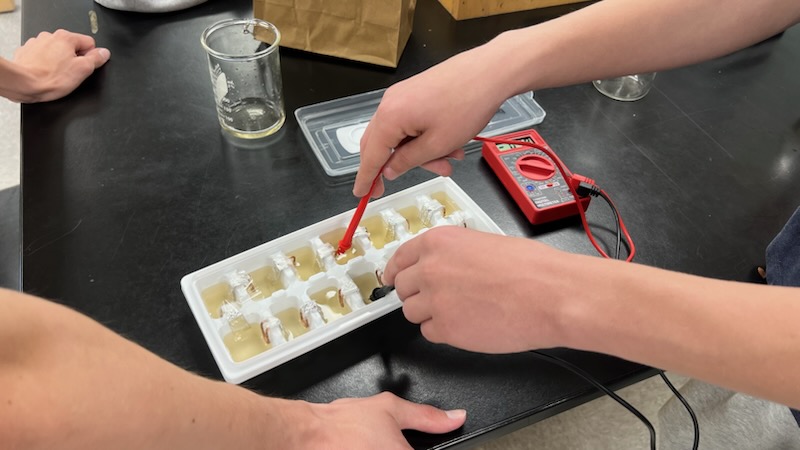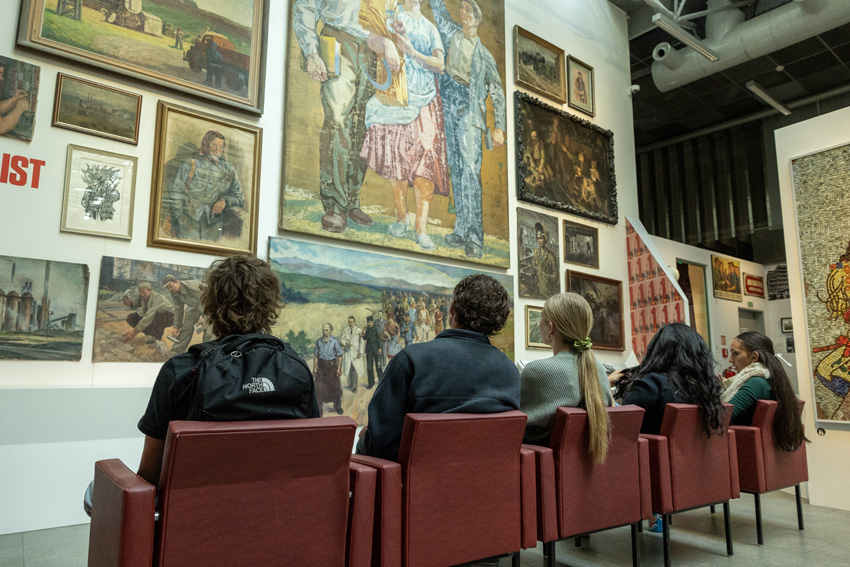
Chinese New Year stands as one of the most important holidays of the year. The origination of the celebration is tied with the coming of spring, a major event in ancient agrarian China. Many origins of the holiday involve ancient mythos and folklore that has since been adapted to modern day festivities.
It was said that on Chinese New Year a great monster named Nian came to terrorize the people. To stop the monster the villagers consulted with a wise man who told the villagers that the monster feared the color red and was scared of loud noises, hence the tradition of red decorations and fireworks.
In 1912 China switched over to a the Western or Gregorian calendar and to avoid confusion with the new year, Chinese New Year was retitled the Spring Festival. Later when China became communist, under Mao Zedong, the festival was stopped for several years and then resumed. The holiday is now based less on traditions, and more on time with family and rest.
Steven Li, ‘16, recalls what makes Chinese New Year a special time in his homeland.
“Chinese people see the New Year as the most important holiday because it’s the day of family reunion,” Li said. “Nowadays there’s not a lot of different between the U.S. and China celebrations except the traditional food and dancing. My favorite part would be when my family members and I stay together, it was really happy and fun time to be with family.”
Discussing the different values represented on this holiday, Clark Zhu, ‘17, likens Chinese New Year to Christmas.
“Chinese New Year is more like a holiday for family union, like Christmas in the US.” Zhu said. “The most significant value of this holiday is family. Throughout history Chinese society has been an agricultural one which means family is the most crucial bound among people. But as time went by, urbanization forced people to leave their homes and get jobs in big cities. Therefore Chinese New Year is pretty much the only time for people to go back home and spend time with their families.”
[fusion_soundcloud url=”https://api.soundcloud.com/tracks/245631013″ params=”auto_play=false&hide_related=false&show_comments=true&show_user=true&show_reposts=false&visual=true” width=”100%” height=”150″ iframe=”true” /]
Remembering the celebrations when she was younger, Candice Cao, ‘18, shares her memories of the Chinese New Year.
“In China, the New Year is the most important festival,” Cao said. “Everyone would come back home and celebrate it with family. I have loved every New Year’s Day I celebrated because I had a lot of fun with my family and friends. I’m from the northeast China so we have different traditions than the southern cities. We have dumplings in the midnight and for dinner, we would have tons of meats and seafood. We also played firecrackers and my cousins loved it.”
Nap Wong, ‘18, reveals how differently the Chinese New Year is celebrated in the United States as opposed to China.
“Chinese New Year is a very important festival to Chinese.” Wong said. “We receive money from relatives which our parent save in our bank accounts, and we never see it

again. Streets are lively, there are too many people on the streets and that makes you want to stay home instead. In US, Chinese New Year doesn’t mean much, some stores may sell some Chinese New Year product. Other than that, nothing much.”
Though the holiday is not wildly celebrated here in the United States, the values of the Chinese New Year do ring true to many Americans. With an emphasis on family bonding, big feasts, and vibrant celebrations, the Chinese New Year can be likened to many American traditions.
For more features, please read Science labs aid in mental development, understanding.
This writer can be reached via Twitter: @matthewsue1 and via email: Matthew Sue.





Scott Donaghe • Feb 11, 2016 at 9:58 am
Very informative article. Would love to see a follow up on the Chinese New Years Celebrations here in Fresno and the Central Valley. There are a variety of groups that gather.
Central High School is putting on the next World Language Fair in the Spring of 2017 and Chinese is a focus for us.